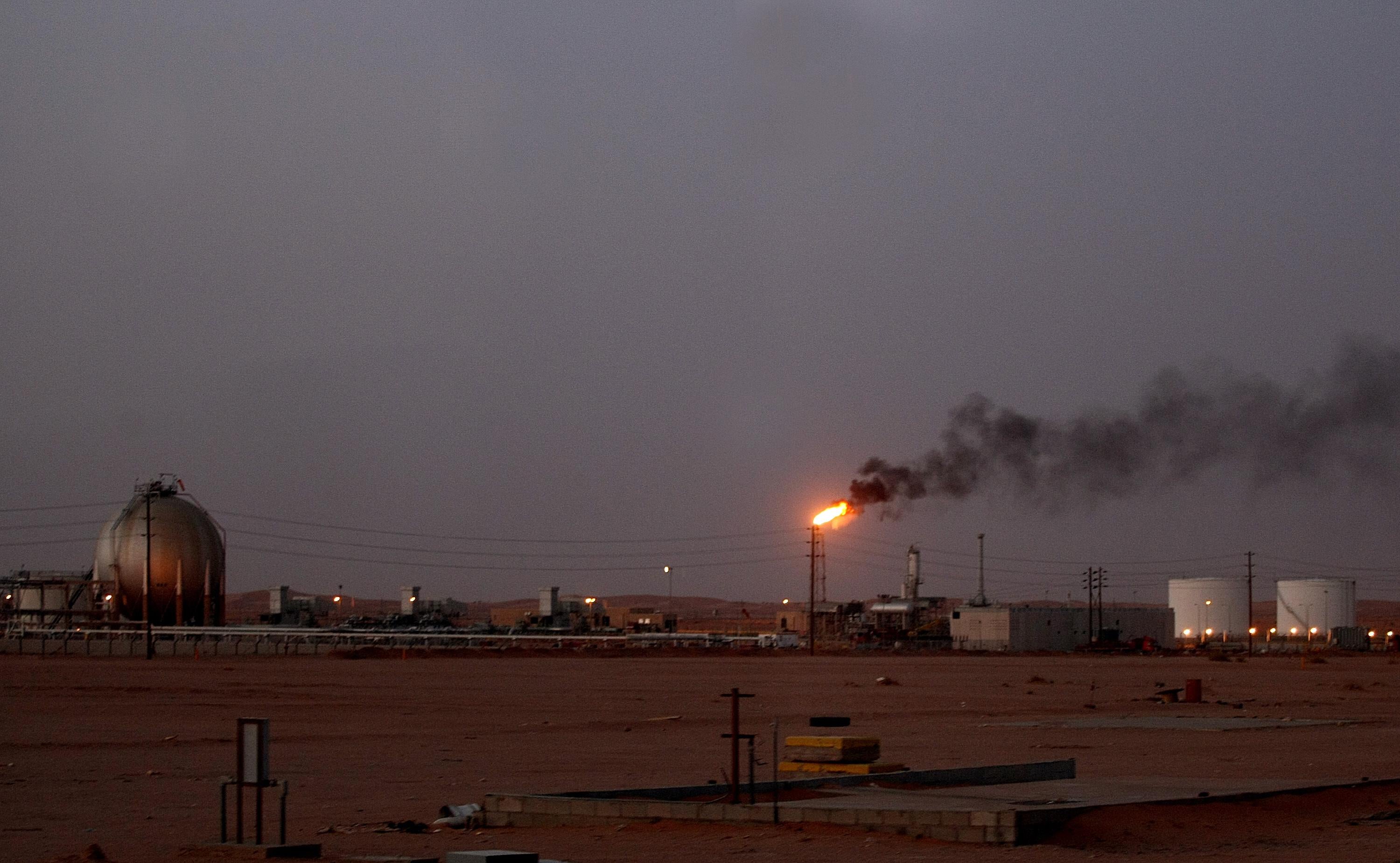As my colleague Jordan Weissmann wrote Tuesday, there are a number of factors behind the continuing global slide in oil prices, including North American production, increased energy efficiency, Europe’s economic stagnation, and China’s slowing growth. But a big one is Saudi Arabia, which, to the dismay of fellow oil-producing nations, has resisted pressure to cut production in order to stabilize prices.
Ahead of an OPEC meeting in Vienna next week, there are some contradictory theories about why Saudi Arabia is content to keep oil cheap for the time being. One is that the Saudis want to nip the U.S. oil boom in the bud. American shale oil is more expensive to produce and needs high prices to remain competitive. As one analyst put it when the kingdom cut prices for U.S. customers earlier this month, “the Saudis have basically declared war on the U.S. oil producers.”
But there’s a competing narrative, or “conspiracy theory” if you prefer, that the Saudis are waging war in cooperation with the United States, against their mutual enemies Russia and Iran. “Saudi Arabia, which intends to manage OPEC, serves the interests of the G20 group,” a former Iranian oil minister told Reuters. Venezuelan President Nicolás Maduro, whose government is collateral damage in this war, also aired this view recently, saying, “What is the reason for the United States and some U.S. allies wanting to drive down the price of oil? To harm Russia.”
The U.S.-Saudi oil alliance is basically taken as a given in the Iranian and Russian media, and the idea got a recent endorsement from New York Times columnist Thomas Friedman as well. Saudi Arabia may indeed want to punish Russia for its support of Bashar al-Assad’s government, and will take any leverage it can get over regional archrival Iran. The U.S., meanwhile, wants to punish Russia for its actions in Ukraine and to pressure Iran into agreeing to a nuclear deal.
To be clear, there’s no proof of any deal, and Saudi Arabia denies its policies are motivated by geopolitical interests. Moreover, U.S.-Saudi relations aren’t at their best at the moment, and the kingdom is extremely skeptical of America’s latest opening to Iran. But even if there isn’t explicit collusion going on, Saudi Arabia’s move certainly benefits some key U.S. foreign policy interests, if not the bank accounts of North Dakota oil drillers.
For the sake of argument, let’s assume that the conspiracy theory is real, and that there is an agreement in place between the U.S. and Saudi Arabia to keep oil prices down. Is it working?
Low oil prices are having an impact on both the Russian and Iranian economies. In Russia’s case, that impact is probably greater than that of the recently imposed Western sanctions. But as Dan Drezner points out, if economic performance were a reliable guide to the future prospects of authoritarian governments, Zimbabwe’s Robert Mugabe and North Korea’s Kim family would have been deposed by angry mobs decades ago. For now, the dire state of the Russian economy doesn’t appear to be having much of an effect on Vladimir Putin’s popularity, and actions that anger the West only seem to make his position stronger at home.
In Iran, the situation is a little murkier. Some experts estimate the country needs $140-a-barrel oil to balance its budget. The price is currently about $80 per barrel. The Islamic Republic’s economic distress is likely one reason why President Hassan Rouhani’s government has been more cooperative on the nuclear issue. The government can’t do much about oil prices, but better relations with the West could bring sanctions relief and investment. But ultimately, the success of the talks will hinge on the views of Iran’s supreme leader, Ayatollah Ali Khamanei, who as the Times notes, “has been less focused on Iran’s economic future than on its status as a regional and world player.”
The oil war may be making life difficult for these countries, then, but there’s no guarantee it will change the behavior of their regimes.
On the other hand, there is one regime whose behavior is likely being affected by the world of cheap oil. Senate Democrats narrowly defeated the Keystone XL pipeline on Tuesday, in part because President Obama was expected to veto it even if it did pass. He likely feels more comfortable about that stance than he would if oil were priced at more than $100 a barrel right now.
